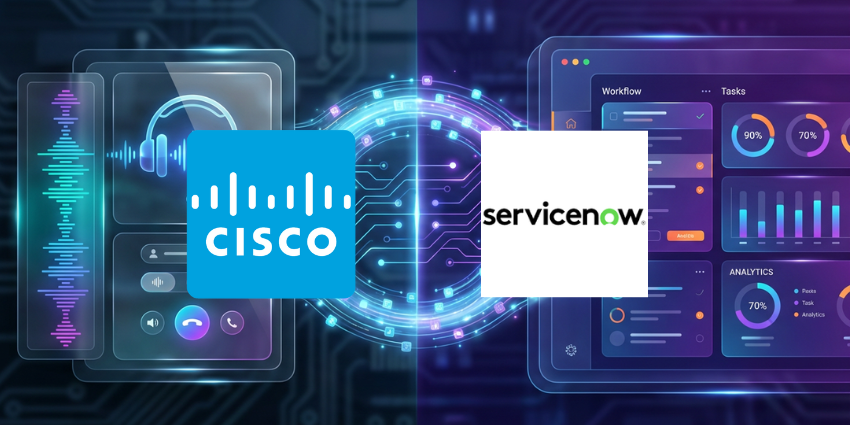In an industry where customer expectations and operational complexity are increasing, contact centers face mounting challenges.
Agents are tasked with handling more sophisticated customer interactions, navigating multiple tools, and maintaining high performance levels. The contact center agent role is becoming more complex, and the industry is struggling with a high turnover rate, with various reports placing the average between 30 to 45 percent per year.
In an exclusive interview with CX Today, Calabrio CEO Dave Rhodes explained how damaging this situation is for both contact centers and customers.
He offered a scenario in which contact centers might need to retrain over a third of their staff every year, creating a constant cycle in which a significant portion of agents are either not properly trained or disengaged.
“It’s a huge problem,” he explains.
“It’s one of the reasons why around 12 billion USD is spent annually on CCaaS workforce and management.”
Far from blaming the agents, Rhodes empathizes with their situation, describing them as largely being “overworked, underappreciated, and underpaid.”
It is clear from Rhodes’ tone that he is perplexed by how agents are often treated, given their importance.
“These agents are at the frontlines between you as a customer and a company’s brand, products, and services – they are the single point of contact.”
“As a customer, I’m sure you can think of 100 different examples over the years where you were either treated really badly or really well, and how that affected how you spent your dollars.”
Rhodes is undoubtedly passionate about the current plight of the contact center agent, but how exactly can Calabrio help solve this problem?
AI’s Role in Tackling Contact Center Complexities
As touched on above, one of the biggest challenges in today’s contact centers is the sheer complexity of the agent experience. Calabrio’s approach to tackling this complexity focuses on reducing friction in agents’ daily workflows.
Rhodes describes it as “surrounding the agent with technology, tooling, and insights to help them drive business outcomes.”
To do this, Calabrio targets unnecessary manual work with its AI-driven analytics and automation software.
“Our platform is designed to make it easier for agents to do their jobs effectively and for businesses to retain top talent,” Rhodes explains.
Critically, Calabrio’s philosophy is to use AI to support agents, not replace them.
“There’s a lot of fear around AI taking jobs,” Rhodes acknowledges.
“But the reality is, AI is here to enhance, not replace. It’s about giving agents the tools to be more effective, to focus on higher-value interactions rather than being bogged down by repetitive tasks.”
This includes embedding AI into the company’s solutions to streamline workflows by offering intelligent automation that reduces manual effort while ensuring agents remain central to the customer experience. By leveraging AI-driven analytics, Rhodes believes contact centers can make data-informed decisions that improve productivity and employee satisfaction.
Calabrio’s WEM Philosophy
One key area where Calabrio has been implementing AI is in its Workforce Engagement Management (WEM) offering. A significant aspect of this has been refining the platform to offer greater agent flexibility, personalization, and insights into real-time employee performance and well-being. Features such as automated coaching and predictive analytics ensure that employees are not just managed but genuinely engaged.
Calabrio also offers an AI-powered self-scheduling tool that gives agents more control over their shifts and workloads. Employees now expect flexibility, meaningful work, and career growth as standard. Companies that fail to adapt risk losing top talent.
“Happy agents mean happy customers,” Rhodes emphasizes.
“The better you support your workforce, the better they can serve customers. It’s a simple equation, but one that many organizations still struggle to get right.”
Data is Still Crucial
Another primary focus for Rhodes’ vision of Calabrio is helping organizations leverage data more effectively. By employing an analytics-driven approach, Rhodes wants to ensure that businesses can make proactive decisions based on real-time insights rather than relying on outdated metrics.
The CEO details how many contact centers are “drowning in data but struggling to extract meaningful insights.
“Our goal is to turn data into action – whether that’s improving forecasting, optimizing schedules, or enhancing customer interactions.”
By integrating AI-powered analytics, Calabrio provides organizations with a clearer view of their operations, enabling them to identify trends, mitigate risks, and enhance overall efficiency.
The Contact Center of the Future
As the customer service industry continues to evolve, Rhodes sees an exciting future ahead – one where AI, WEM, and data come together to create smarter, more efficient contact centers where agents are equipped with the tools they need to quickly and easily meet customers’ needs.
“We’re at an inflection point,” he concludes.
“The organizations that succeed will be the ones that embrace change, invest in their people, and use technology strategically to enhance – not replace – the human experience.”
You can find out more about Calabrio’s approach to the agent experience by checking out this article today.







